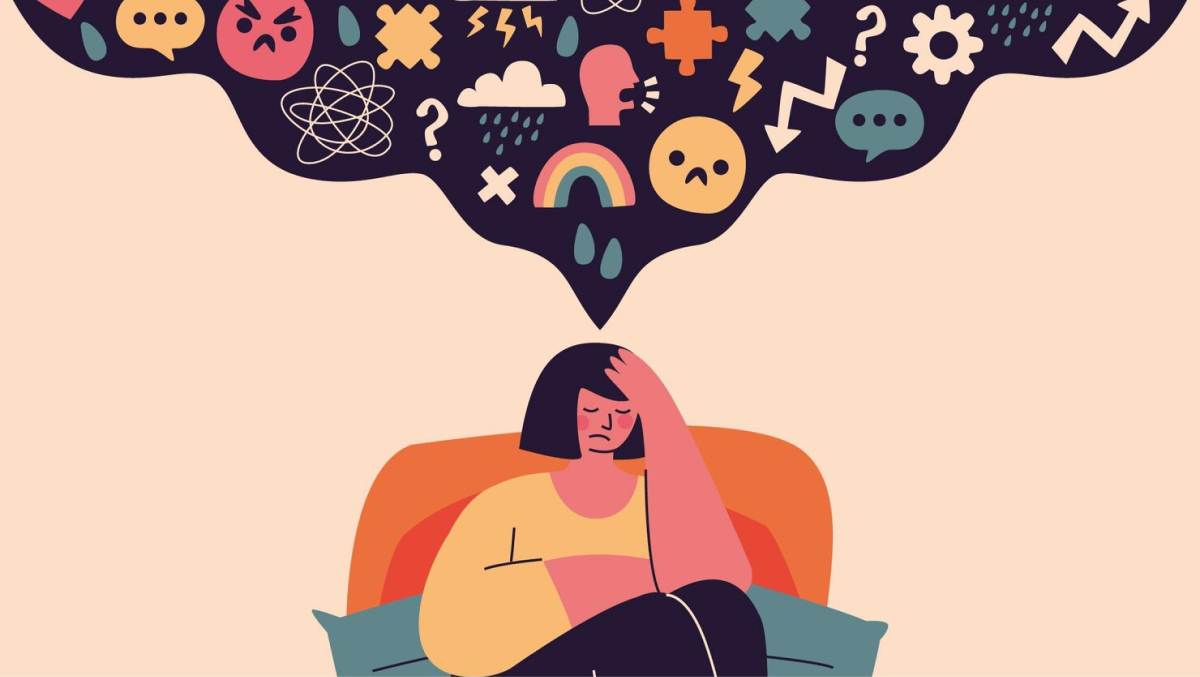Common Mental Health Conditions

Mental Health has been a Rage in recent times. People have started taking their health issues seriously. There is more awareness about the issue than any other time. Mental Health includes emotional, psychological, social and to some extent physical well-being of a person. It is how a person reacts to various stressors, environment or person. Basically, it determines who a person truly is.
In this blog, we will discuss the most common mental health conditions prevalent in our society. The first most common and widely misunderstood mental health condition is Depression. Depression or dysphoria, is commonly characterized by persistent feelings of sadness, hopelessness or what we call experiencing blues and lack of interest in once enjoyable or daily routine activities of life. You are losing weight even without trying, you are either eating too much or don’t want to eat at all. You either sleep all day or are awake all night. You feel constantly tired and weak all the time, agitated, restless and constantly on the edge. You feel utterly hopeless and have no idea as to what to do with your life anymore, there is a constant sense of guilt and worthlessness. The most alarming of them is you feel like ending your life. You may not realize it in the beginning, but yes eventually it will start to interfere with your social, occupational and personal areas of life.
If you have been experiencing any of such symptoms, it is high time you take help. And by help, I mean Professional help. No! meditation or Yoga may not always help and yes you may need medications to alleviate your psychological symptoms, and that is okay, combine it with therapy and it will cause wonders. It is high time we start treating our physical and mental ailments equally and give equal levels of attention to both.
The other most common and exaggerated mental health condition would be Anxiety. In a normal condition, we experience anxiety when there is threat or stress and our ‘’Fight or Flight” mechanism is to be activated, which is a normal psychological response and is short term. But when you are constantly on edge about everything, that is when this normal psychological response turns into a disorder. You are constantly worried, restless, alert, irritable, to a point that you are unable to sleep or concentrate on your work and it affects your social life and there is a constant feeling of tension in your body. In such conditions both Therapy along with medications has shown great results, as medications will help you calm your mind and therapy will help you declutter your thoughts and clear your mind.
The next one in the list is Specific Phobias. So, Phobias are irrational fear of an object, situations or activities with no actual danger. The fear is often disproportionate to the actual threat and the person usually avoids such situations that often interfere with day-to-day activities. The most common phobias are Animal phobia, Height phobia, Blood related phobia, Fire or water phobias, etc. Encountering with the triggers may lead to anxiety-like situations, i.e. breathlessness, palpitations, sweating, dizziness and escapism. These phobias can be managed by behavioral therapies, exposure therapies, etc.
The next condition we will talk about is panic disorders. We all must have experienced panic attacks, big or small, in our lives, but when such panic attacks become frequent, sudden and with an unexpected onset and most importantly without any obvious trigger, it can be termed as a ‘Disorder’. These are sudden anxiety episodes of intense fear and discomfort which gets escalated within minutes. The person suffering from this disorder is constantly on edge and fears future attacks, this leads to change in their behaviors and social well-being. Few common symptoms include palpitations, chest discomfort, breathlessness, dizziness, trembling, sweating, nausea and in extreme situations loss of consciousness. Panic disorders can be managed by certain medications, therapy, lifestyle changes or certain relaxation techniques like breathing exercises, mindfulness, etc.
The next most common condition is Obsessive Compulsive Disorder. This disorder is characterized by obsessions like intrusive thoughts, images or urges which causes significant anxiety and disorder. A few common obsessive behaviors are fear of infection, fear of self-harm, unwanted thoughts of aggression or sexual content, excessive need of order or symmetry, frequent checking and cross checking, etc. Another key feature of OCD is Compulsion like repetitive actions or mental acts which the person is compelled to perform in order to alleviate the anxiety related to the obsessions. However, the compulsive actions have nothing to do with the obsessions and are excessive. Such few compulsive actions include, excessive hand washing or cleaning, repeated counting, checking locks and doors, arranging and rearranging objects in a particular order, constantly seeking validations, etc. The OCD CYCLE starts with Obsession which triggers the anxiety or distress, which leads to performing compulsions to relieve anxiety temporarily which in turn reinforces the whole cycle, thereby repeating it. OCD is usually caused commonly by stress, trauma or a chemical imbalance in our brain, it can also have a genetic cause or an impaired brain structure can play a role. It can be managed by various therapies, medications like SSRIs or TCAs or Deep Brain Stimulations (DBS), Lifestyle changes and various other coping mechanisms.
Another most talked about mental health condition is Post-traumatic stress disorder (PTSD). PTSD is generally triggered after experiencing a traumatic or life-threatening event. The characteristic is that the symptoms persist for more than a month. These symptoms are Intrusive thoughts which are reflected as nightmares or flashbacks or images, Avoidance, Anger outbursts, irritability, insomnia, negative thoughts or mood, etc. It is said that the intensity of the trauma is directly proportional to the risk of PTSD. Apart from that, past mental health conditions and lack of social support may also play a role in development of PTSD. All these symptoms arise due to increase in stress hormones or changes in neurobiology due to past traumas or family history of stress, anxiety, etc. PTSD can be managed by various behavioral therapies, exposure therapies, EMDR, Medicines like SSRIs, Group therapy, Lifestyle changes, Various coping mechanisms like grounding, self-care, support networks, etc.


Comments (0)